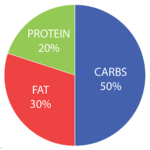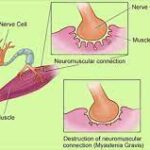
Gastrointestinal surgery can be a life-saving procedure for many people, but there are always risks involved. In this article, we provide you with 10 ways to help reduce the chances of having to go through gastrointestinal surgery. from preparing mentally and emotionally for the surgery to following through with postoperative care.
Understand the Symptoms of Gastrointestinal Surgery
If you are considering gastrointestinal surgery, it is important to understand the symptoms of the surgery so that you can avoid it if possible.
Some of the most common symptoms of gastrointestinal surgery include: feeling sick to your stomach, abdominal pain, nausea, vomiting, diarrhea, and constipation. If you experience any of these symptoms, it is best to consult with your doctor before undergoing the surgery.
It is also important to understand the risks associated with gastrointestinal surgery. For example, a large percentage of people who undergo gastrointestinal surgery experience complications such as bleeding, infection, and nerve damage. If you are considering gastrointestinal surgery, be sure to discuss all of the risks involved with your doctor.
Eat a Healthy Diet Before Surgery
Before surgery, it is important to eat a healthy diet. This will help to prevent gastrointestinal surgery from becoming necessary.
One of the best ways to prevent gastrointestinal surgery is to eat a healthy diet. This means eating foods that are high in fiber and low in sugar. It also means eating foods that are rich in nutrients, including vitamins and minerals.
By following a healthy diet before surgery, you can help to avoid complications during and after the surgery. Additionally, a healthy diet can improve your overall health and reduce your risk of developing diseases in the future.
Avoid Smoking and Drinking Before Surgery
One of the most common reasons people have surgery is because they have GERD (gastroesophageal reflux disease). GERD is a condition in which the stomach acid flows back up into the esophagus. This can cause heartburn, Barrett’s Esophagus, and even stomach cancer.
The best way to prevent these problems is to avoid smoking and drinking before surgery. Both of these activities increase your risk of developing GERD. Smoking also increases your risk of other medical problems, such as COPD (chronic obstructive pulmonary disease), stroke, and cancer.
If you do have to drink or smoke before surgery, make sure to do so slowly. Drinking too much alcohol or smoking can increase your risk of heartburn, Barrett’s Esophagus, and even stomach cancer.
Exercise Regularly After Surgery
After surgery, it is important to take regular exercise to prevent gastrointestinal (GI) problems. Exercise can help to improve your mood and reduce inflammation in the digestive system.
If you are recovering from surgery, start with mild activity such as walking or light stretching. Over time, increase your activity level until you are able to maintain your normal routine. Avoid strenuous exercise for the first few weeks after surgery to avoid further injury.
If you have any questions about post-surgery exercise, speak with your health care provider.
Protect Yourself From Infection After Surgery
After surgery, it’s important to protect yourself from infection. Here are some tips to help you do this:
1. Get vaccinated. The best way to prevent infection after surgery is to get vaccinated. Vaccines help to protect you against a variety of diseases, including gastrointestinal infections. Depending on the vaccine, it may also help to prevent post-surgical pain and inflammation. Check with your doctor about which vaccines are right for you.
2. Avoid contact with blood and body fluid droplets. After surgery, avoid contact with blood and body fluid droplets. This means avoid touching your face, mouth, and other open cuts or wounds, as well as anything that has been contaminated with blood. Washing your hands thoroughly every time you leave the hospital is also important for preventing infection.
3. Drink plenty of fluids. After surgery, it’s important to drink plenty of fluids to prevent dehydration and stomach problems. If you feel nauseous or have trouble swallowing, drink small amounts of clear liquids (such as fruit juices) instead of drinking full volumes of liquids.
4. Take ibuprofen or acetaminophen as prescribed. If you experience pain or discomfort after surgery, take ibuprofen
Take Medications as Prescribed After Surgery
After surgery to correct a gastrointestinal disorder, it is important to take medications as prescribed. This will help to prevent complications and restore your health as quickly as possible.
There are many different types of medications that can be taken after surgery. Some may be given directly to you in the hospital, while others may need to be taken home. It is important to follow the instructions for taking these medications carefully. If you have any questions about how to take them or about your medication schedule, please ask your doctor or nurse.
It is also important to avoid eating high-fat foods and drinking alcohol after surgery. These foods and drinks can increase the risk of developing post-operative complications. Instead, eat bland foods and drink plenty of fluids to help flush out any toxins that were released during surgery.
Overall, following the instructions for taking medications after surgery is essential for restoring your health and preventing complications.
Recover Properly After Surgery
After gastrointestinal surgery, it is important to recover properly so that you can resume your normal routine as soon as possible.
The first step after surgery is to rest. You should not attempt any physical activity until your doctor has given you the all-clear. This means that you should not lift anything heavier than a gallon of milk or take a flight for at least a week after surgery.
You should also avoid drinking large amounts of fluids and eating heavy meals for the first few days after surgery. These foods can cause excessive fluid retention, which can lead to swelling and pain in the abdomen. Instead, drink bland liquids and eat light meals that are low in fat and calories.
In addition to resting and avoiding big meals, you should take painkillers as prescribed by your doctor. These medications will help to relieve the pain experienced after surgery.
Get Support from Family and Friends
One of the main ways to prevent gastrointestinal surgery is to get support from family and friends. This support can help to reduce the anxiety that patients may experience before surgery. Family and friends can also provide moral support during the surgery itself.
In addition, patients can get support from online resources. These resources include forums and chat rooms that are specifically designed for patients who are about to have surgery. This type of support can be very helpful in reducing the anxiety that patients may feel before their surgery.
Document Your Recovery Properly
1. document your recovery properly
It’s important to document your recovery properly after surgery. This will help you and your doctor to track your progress and make sure that you’re getting the best possible care. You should keep a journal of all your symptoms, what you did to relieve them, and how your overall health is progressing. This documentation will also help you in case of any future complications or problems.
2. Listen To Your Body
It’s important to listen to your body during recovery. If you feel pain, don’t hesitate to take medication or see a doctor. By doing this, you can help minimize any potential complications and make sure that you get the best possible care.
3. Get Plenty Of Rest And Exercise
Get plenty of rest and exercise during recovery. This will help to heal your body and ensure that you have a speedy return to normal life. Exercising can also help reduce the amount of pain you experience during recovery.
Conclusion
If you’re like most people, you cringe when you hear the words “gastrointestinal surgery.” But gastrointestinal (GI) surgery isn’t as scary as it sounds, and there are plenty of ways to prevent it. In this article, we’ve outlined 10 ways to help stay healthy and avoid GI surgery. Keep reading for tips on diet, exercise, stress relief, and more!






